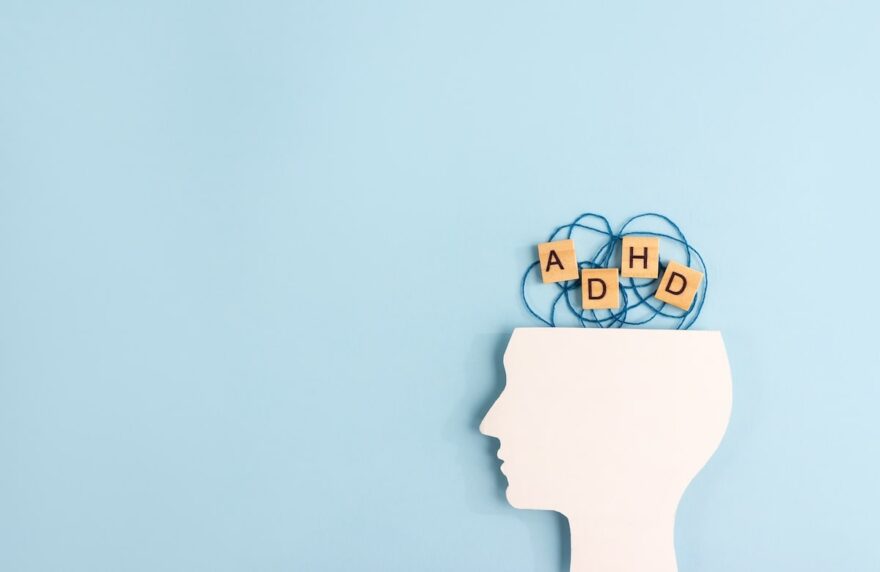Understanding the link between cocaine and ADHD
Cocaine and Attention-Deficit/Hyperactivity Disorder (ADHD) are two significant topics in the realm of mental health and substance use disorders.

What to Know About Cocaine and ADHD
ADHD is a neurodevelopmental disorder that affects individuals’ ability to focus, control impulses, and regulate their activity levels.
On the other hand, cocaine is a powerful stimulant drug that affects the brain’s dopamine system, leading to a sense of intense euphoria, increased energy, and, a sense of dependence. It is highly addictive.
Understanding the intersection between ADHD and cocaine misuse is crucial because the symptoms of ADHD and the effects of cocaine on the brain share some similarities. However, cocaine misuse in people with ADHD can lead to even more harmful outcomes and exacerbate the disorder’s challenges.
People with ADHD may struggle with impulsivity, inattention, and hyperactivity, making them more vulnerable to engaging in risky behaviours, including substance misuse.
Cocaine’s stimulating effects may appeal to individuals with ADHD because it might be perceived as offering short-term relief from some of the symptoms.
Not only is that not true, but the long-term consequences are devastating, leading to addiction, deteriorating mental health, and an increased risk of cardiovascular and neurological damage.
In this article, we’ll explore the link between cocaine and ADHD misuse, how cocaine affects those with ADHD, and why some individuals with ADHD might turn to cocaine as a flawed self-medication strategy.
How Are ADHD and Cocaine Linked?
The link between ADHD and cocaine misuse can be traced to the way both ADHD and cocaine disrupt the brain’s dopamine system. ADHD is characterised by dysfunction in dopamine regulation, which plays a key role in attention, motivation, and reward processing.
People with ADHD often have lower levels of dopamine activity in certain brain regions, contributing to difficulties with attention, focus, and impulse control.
Cocaine is a stimulant that dramatically manipulates dopamine levels in the brain by preventing the reuptake of dopamine at the synapses.
This creates a sensation of euphoria and heightened energy. The intense stimulation that cocaine provides may be perceived as temporarily alleviating some of the symptoms of ADHD, such as inattentiveness and low energy levels.
However, the any sense of relief is short-lived and is followed by a crash that can worsen ADHD symptoms and lead to a cycle of repeated use to regain the initial sense of relief. It’s like trying to put out a fire with gasonline.
Research suggests that individuals with ADHD are more likely to misuse stimulants, including cocaine, due to the underlying brain chemistry that both conditions share, and more importantly, due to the myth surrounding cocaine being helpful to someone with ADHD.
Additionally, untreated or inadequately managed ADHD symptoms can increase the likelihood of engaging in impulsive and risk-taking behaviours, including experimenting with cocaine. Cocaine and ADHD are linked as a result of people mistakenly believing cocaine is helpful to them.
How Does Cocaine Affect People with ADHD?
Cocaine has a particularly dangerous effect on individuals with ADHD. While it may seem to temporarily improve focus and energy, the drug’s impact on the brain is far from beneficial.
Cocaine’s artificial manipulation of dopamine leads to a sense of a rapid high, but as the drug wears off, levels crash, leaving the person feeling fatigued, irritable, and unable to concentrate—effects that exacerbate the very symptoms of ADHD. It’s an entirely counterproductive process.
In the long term, cocaine misuse severely impairs cognitive function, further disrupting attention and decision-making processes. It can also interfere with the effectiveness of medications typically prescribed for ADHD, such as stimulants like methylphenidate or amphetamines, which are designed to regulate dopamine more steadily and safely than cocaine.
Moreover, cocaine is highly addictive as the brain begins to rely on the external stimulation provided by the drug to maintain normal dopamine function. For people with ADHD, who already have difficulty managing impulses, the risk of developing a sense of dependence on cocaine is even higher. The cycle of trying to alleviate ADHD symptoms with ADHD and cocaine is not only counter-productive but spirals into addiction, making it even harder to manage both ADHD and the consequences of substance abuse.
Are People with ADHD More Susceptible to Cocaine Misuse?
Yes, people with ADHD are at a higher risk for substance misuse due to several factors. First, the impulsivity and risk-taking behaviours associated with ADHD make it more likely that individuals will experiment with drugs
Second, many individuals with ADHD report a desire to self-medicate to relieve symptoms such as restlessness, distractibility, and difficulty concentrating, especially if their condition is undiagnosed or untreated. The mistaken belief that cocaine can help with the symptoms of ADHD fools people into using it.
Additionally, individuals with ADHD may experience frustration or low self-esteem because of their symptoms, which can lead to using substances like cocaine as a flawed coping mechanism to feel more in control, confident, or motivated. In fact, cocaine does the complete opposite.
Why May Some People with ADHD Use Cocaine as a Treatment?
Some people with ADHD may turn to cocaine as an attempt at self-medication, particularly if they are not receiving adequate treatment for their symptoms.
Because cocaine is a stimulant, it can seem to temporarily improve alertness and focus, which may make individuals feel as though they are addressing their ADHD symptoms.
However, this is a dangerous misconception. Cocaine and ADHD might appear to go together but cocaine use is not an effective or viable or safe treatment for ADHD; instead, it worsens the condition and introduces significant health risks.
The proper treatment for ADHD involves the use of medications prescribed by a healthcare provider, such as stimulant medications (methylphenidate, amphetamines) or non-stimulant medications (atomoxetine), alongside behavioural therapies.
These treatments work by balancing neurotransmitters like dopamine and norepinephrine in a controlled and sustained manner, providing relief from ADHD symptoms without the damaging effects associated with drug misuse like cocaine.
In summary, ADHD and cocaine misuse is a serious issue. While cocaine may appear to temporarily alleviate some ADHD symptoms, it ultimately makes them worse exacerbating both the disorder and the risk of addiction. Recognising and addressing the underlying issues with professional help is the best path for individuals dealing with both ADHD and substance misuse.
ADHD and cocaine addiction is a dangerous cycle, but with proper treatment, it can be avoided. If you are worried a friend or family member may be using cocaine, there are some common symptoms. Getting free from cocaine addiction can be easy if you use a safe, drug-free method that addresses the psychological aspects of addiction.
Find out more about our quit cocaine program